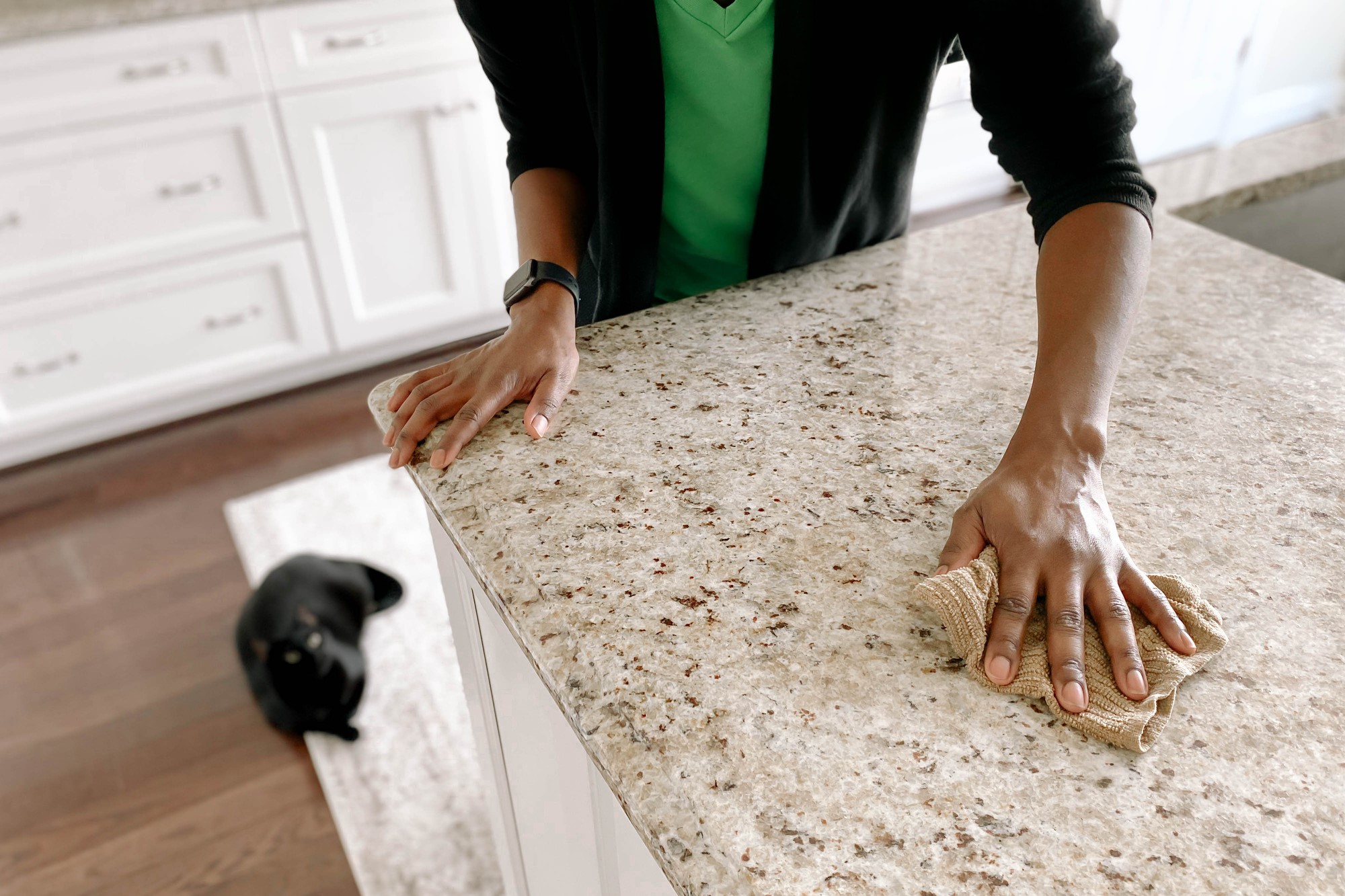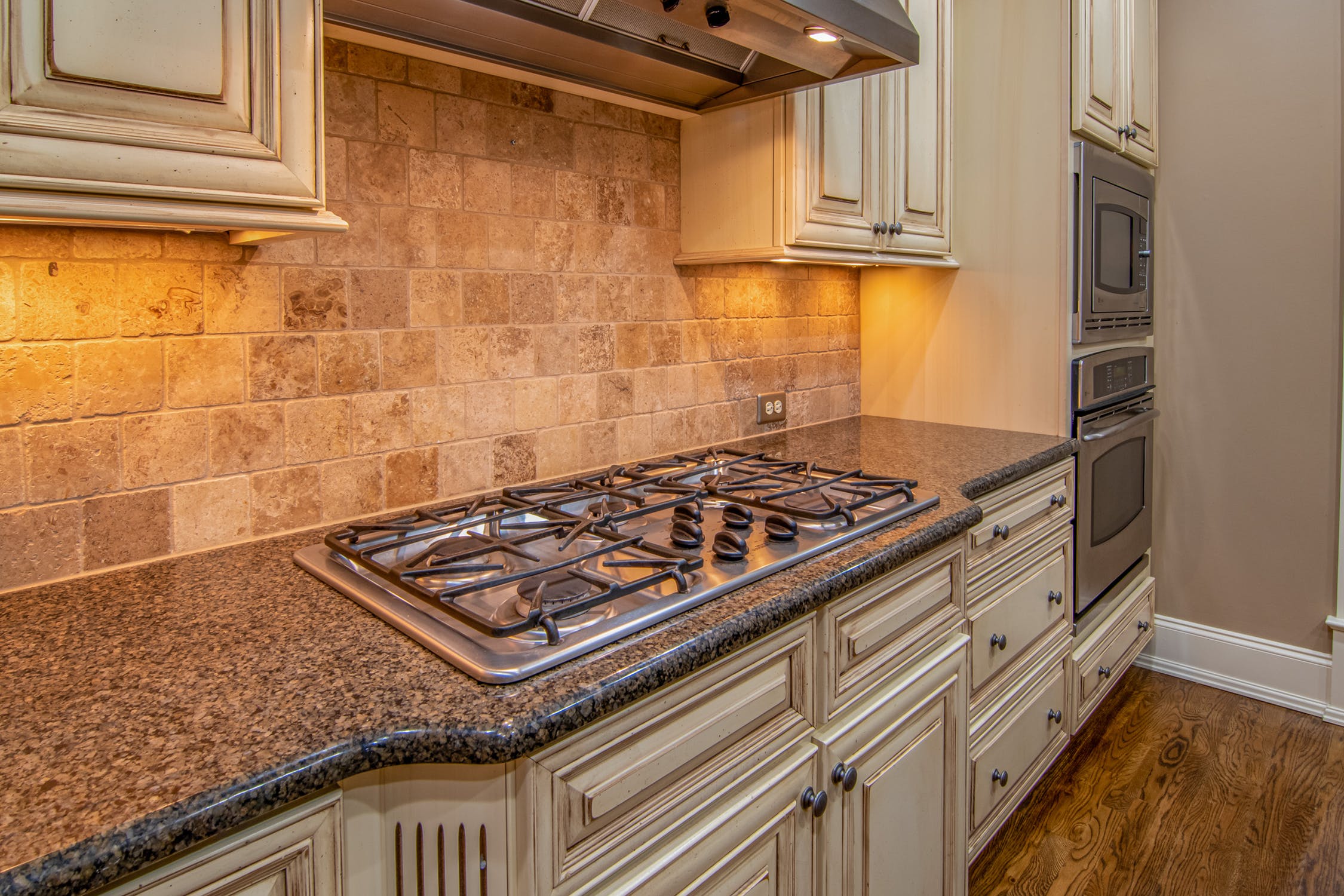Understanding Granite Countertop Care

Granite countertops are a popular choice for homeowners due to their durability, beauty, and natural elegance. However, these natural stone surfaces require specific care and maintenance to preserve their appearance and longevity.
Granite Properties and Care
Granite is a porous stone, meaning it has tiny holes that can absorb liquids and stains. This porosity makes it susceptible to staining, etching, and damage if not properly cared for. Regular cleaning and sealing are essential to protect your granite countertops and keep them looking their best.
Importance of Regular Cleaning and Sealing
- Regular Cleaning: Daily cleaning with a mild, pH-neutral cleaner helps remove dirt, grime, and spills that can lead to staining. This prevents the build-up of residues that can damage the surface.
- Sealing: Applying a sealant creates a protective barrier that fills in the pores of the granite, preventing liquids from penetrating and causing stains. It also helps repel oils and acids, protecting the stone from etching.
Sealing should be done every 1-2 years, depending on the type of sealant used and the amount of traffic the countertop receives.
Identifying Common Granite Countertop Problems
- Etching: Etching is a dulling or clouding of the granite surface caused by acidic substances like lemon juice, vinegar, or wine. Etching appears as a dull, matte spot on the surface.
- Staining: Staining occurs when liquids penetrate the pores of the granite and leave a colored mark. Common staining culprits include coffee, tea, wine, and fruit juices.
- Scratches: Granite is a hard stone, but it can still be scratched by sharp objects like knives or metal utensils. Scratches can be minor or deep, depending on the severity of the impact.
Essential Cleaning Supplies: How To Clean Granite Countertops In Bathroom

Choosing the right cleaning supplies is crucial for maintaining the beauty and longevity of your granite countertops. Using harsh chemicals or abrasive cleaners can damage the sealant and dull the surface. Here’s a list of recommended cleaning supplies specifically for granite countertops in bathrooms.
Recommended Cleaning Supplies
- Mild Dish Soap: A gentle dish soap is effective for everyday cleaning and removing light stains.
- Warm Water: Warm water is essential for rinsing away soap residue and dirt.
- Microfiber Cloth: Microfiber cloths are soft and absorbent, making them ideal for cleaning and drying granite without scratching the surface.
- Granite Cleaner: Specialized granite cleaners are formulated to clean and protect the sealant without damaging the stone.
- Stone Sealer: A sealant helps protect the granite from stains and water damage. Apply a fresh coat of sealant every 1-2 years, depending on the amount of use and wear.
General Cleaners vs. Specialized Granite Cleaners
General cleaners often contain harsh chemicals that can damage the sealant and etch the surface of granite. Specialized granite cleaners are formulated to be pH-neutral, ensuring they are safe for use on natural stone. They are also designed to clean effectively without stripping away the sealant.
Mixing Cleaning Solutions
- For everyday cleaning: Mix a few drops of mild dish soap with warm water in a spray bottle.
- For tougher stains: Follow the instructions on your chosen granite cleaner. Most granite cleaners require a dilution with water, typically a ratio of 1:10.
Always test any cleaning solution on a small, inconspicuous area of the countertop before applying it to the entire surface.
Cleaning Methods and Techniques

Now that you have the right supplies, let’s dive into the actual cleaning process. A methodical approach is key to keeping your granite countertops sparkling. This includes pre-cleaning and rinsing, ensuring all traces of soap scum, toothpaste splatters, and other bathroom grime are effectively removed.
Pre-Cleaning and Rinsing
Pre-cleaning is an essential step that prepares your granite for the actual cleaning process. This involves removing loose debris and dust that can interfere with the cleaning solution’s effectiveness. Here’s a step-by-step guide:
- Remove loose debris: Use a soft-bristled brush or a dry microfiber cloth to sweep away any visible debris, such as hair, dust, or food particles. This prevents these particles from being ground into the surface during cleaning.
- Rinse with water: After removing loose debris, thoroughly rinse the countertops with clean water. This step removes any remaining dust and residue, ensuring the cleaning solution can directly contact the granite surface.
Pre-cleaning allows the cleaning solution to work more effectively, ensuring a thorough and sparkling clean.
Removing Soap Scum and Toothpaste Splatters, How to clean granite countertops in bathroom
Soap scum and toothpaste splatters are common bathroom countertop nuisances. These residues can be stubborn, but with the right techniques, they can be easily removed.
- Use a mild cleaning solution: Mix a few drops of mild dish soap with warm water in a spray bottle. Avoid using harsh chemicals, as they can damage the granite’s finish. This solution is effective for removing most soap scum and toothpaste splatters.
- Apply and scrub: Spray the cleaning solution onto the affected areas and let it sit for a few minutes. Use a soft sponge or microfiber cloth to gently scrub the residue. For stubborn stains, you can use a non-abrasive scrub brush, but be careful not to apply too much pressure.
- Rinse thoroughly: Once the residue is removed, rinse the countertops thoroughly with clean water to remove any soap residue. Dry the surface with a clean microfiber cloth.
Using Microfiber Cloths and Soft Sponges
Microfiber cloths and soft sponges are essential tools for gentle cleaning. They are highly absorbent and leave no streaks, making them ideal for cleaning granite countertops.
- Microfiber cloths: Microfiber cloths are excellent for removing dust, fingerprints, and other light grime. They are also effective for drying the countertops after cleaning.
- Soft sponges: Soft sponges are ideal for applying cleaning solutions and scrubbing away stubborn stains. Choose sponges with a non-abrasive texture to avoid scratching the granite surface.
